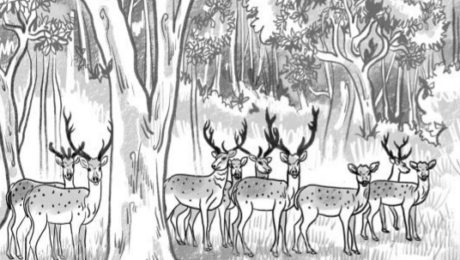Ladakh’s mass agitation heats a cold desert: India’s northernmost region is demanding constitutional safeguards
Wednesday, 17 April 2024
- Published in Latest Post
No Comments
Confronting Beauty: A Comic Book Adaptation
Tuesday, 02 April 2024
Click here to read the comic book.
- Published in Latest Post
Protected Area Update, February 2024, No. 167
Thursday, 28 March 2024
- Published in Announcements
Latest Vikalp Sangam Newsletter is out!
Wednesday, 13 March 2024
- Published in Announcements
Children of the Big River
Monday, 11 March 2024
- Published in Latest Post
Marathi Maharashtra Protected Area Update, January 2024, No: 16
Wednesday, 06 March 2024
- Published in Latest Post
Sacred landscapes of Western Rajasthan: Documentation of four Orans
Tuesday, 05 March 2024
- Published in Latest Post
Kalpavriksh at 40: An environmental organisation’s journey (1979-2019)
Tuesday, 05 March 2024
- Published in Latest Post
Can the Bharat Jodo Nyay YatraAct as a Catalyst for Deeper Transformation in Our Democracy?
Friday, 09 February 2024
- Published in Latest Post
People in Conservation: Biodiversity Conservation and Livelihood Security. Vol 12, Issue 1, April – December 2023
Thursday, 08 February 2024
Latest People in Conservation: Biodiversity Conservation and Livelihood Security Newsletter is out!
To read the entire newsletter please click here.
- Published in Latest Post










